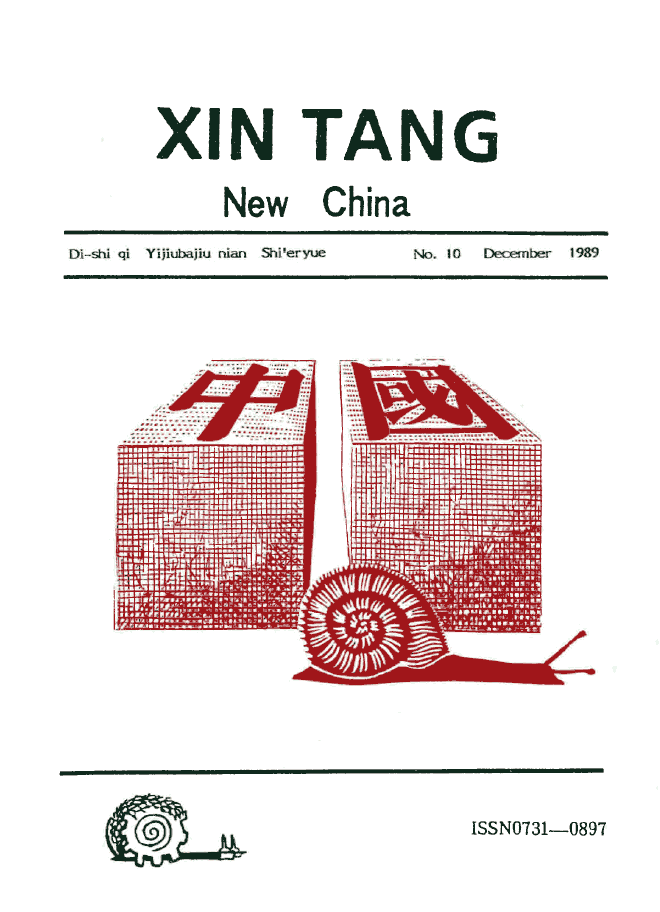Pinyin for daily use
« previous post | next post »
Self-explanatory screen shot:
Translation: "Went out for lunch with the students. The xiaolongbao (small steamed buns) were super delicious!!"
The only note I would add is that I could read these sentences just as fast and easily (perhaps more so) without the tonal diacritical marks, but would automatically add the tones. In experiments with Pinyin texts that my wife and I carried out back in the 80s, we found that fluent readers of pinyin didn't really need the tone marks.
(Source)


Jenny Chu said,
April 11, 2018 @ 8:48 pm
Fluent Vietnamese readers don't need the diacritics either … nd flnt nglsh rdrs dnt rlly nd vwls, bt thy sr r nc t hv.
cliff arroyo said,
April 12, 2018 @ 12:09 am
"Fluent Vietnamese readers don't need the diacritics either"
I remember getting ASCII vietnamese emails from a teacher which I could read easily enough (I think they were careful about word choice and overall sentence structure).
IME though they're pretty consistent in writing them. Maybe because they're perceived as an integral part of the orthography and not something that comes and goes depending on context.
Tones are definitely included when spelling words out loud in the traditional manner. Note this video which highlights the part being spelled.
https://www.youtube.com/watch?v=js5RKAX4odw
Alex said,
April 12, 2018 @ 3:25 am
The vast majority of long term expats that I know here in Shenzhen start off trying to learn how to write the characters but realize its a complete waste of time and just learn to recognize them and how to input with pinyin. Then their character recognition is reinforced by being out and about. Its like having a yellow sticky everywhere as almost every sign, menu, advertisements have characters. So reading is reinforced by being out and about. Furthermore the local language instructors who teach them also have learned this. If the students don't show feel like they are making progress or getting bored or sick of writing the same characters over and over again they might change teachers or drop off. So the teachers have via market forces de-emphasized the character writing component.
Unfortunately public school curriculum hasn't adapted.
Victor Mair said,
April 12, 2018 @ 7:12 am
@Jenny Chu
I can read your vowelless English without too much trouble, but far more slowly than I can read toneless Pinyin Mandarin, which is almost effortless. Consequently — at least for me — I conclude that the vowels of English are more important than the tones of Mandarin.
Victor Mair said,
April 12, 2018 @ 7:14 am
@cliff arroyo
Thanks very much for that fascinating video showing showing how Vietnamese can "spell" out the tones. So far as I know, we don't have a way to do that in Mandarin.
Victor Mair said,
April 12, 2018 @ 7:23 am
One of my next LL posts will be about pseudo-Vietnamese diacriticals added to German!
TK Mair said,
April 12, 2018 @ 10:35 pm
As a semi native speaker and listener of Mandarin, I just thought through what ways, other than volume, the speaker's mood can transmit in Mandarin. Of course, if someone is yelling "zhe bu shi wo de xiwang!" That'd probably indicate they were upset. The same sentence could be conveyed quite nicely or even apologetically.
Playing the soft version versus the angry version's sounds in my mind, the tones don't change very much, but the rhythm seems to change. The upset version is more stacatto, whereas the nice version has a lilt between "bu shi" and "xiwang." Some other rhythmic variation can also seem to confer steadfastness or conviction.
It also seems to matter which syllables are emphasised. I've heard really unusual syllable emphasis when someone was really at wit's end! The nice version has emphasised and longer first syllables.
Alex said,
April 12, 2018 @ 10:55 pm
A joke about volume:
My half Chinese, half Vietnamese cousin from LA who worked in HK and now in Bangkok were having late lunch at a very nice Italian place attached to a shopping center in HK, my phone vibrated so I stepped outside the restaurant to take the call. When I returned he said you have been in the mainland too long. I said why do you say that. He replied i could hear you. It was just a normal business call. There is a saying about Wuhan people talking that is like arguing. Just wondering if different countries also have regions where volume is noticeably higher than other regions within that country.
dainichi said,
April 12, 2018 @ 11:29 pm
> fluent readers of pinyin didn't really need the tone marks.
What is the benefit of leaving out tone marks? That might have made sense in a time where typewriters weren't typically able to typeset them, but that can't possibly be a concern anymore.
cliff arroyo said,
April 13, 2018 @ 1:45 am
"What is the benefit of leaving out tone marks?"
Especially since pinyin is often meant for less than super fluent readers who need the extra info they convey.
I think the real problem is the extensive tonal sandhi of Mandarin wherein writing all the changes is too much trouble. There's also the question of whether to write all five tones or just the four that occur in free citation forms…
In terms of practicality I think the ideal system might be based on just the four citation tone forms and ignoring the difference between zero and first tone and always writing the same tone for a particular morpheme, a balance between stability and surface phonemicity (often at odds in emerging writing systems).
But I don't know enough about Mandarin to know for sure (though I'm fairly sure testing should be done on non-linguists and on linguists who will be too biased)
Victor Mair said,
April 13, 2018 @ 6:49 am
For many years, the foreign students in my classes have far outnumbered the American students. Often in my classes I don't have a single American student. The foreign students come from countries all over the world — East Asia, Southeast Asia, South Asia, Northeast Asia, Central Asia, Europe, the Middle East….
In general, they usually have decent or even quite good written English, but their spoken English varies so widely that I often have difficulty understanding what they are saying, and they similarly have difficulty understanding each other.
Every aspect of pronunciation is affected: vowel quality, consonants, pitch, and so on. Naturally, the placement of primary and secondary stress on unexpected syllables also has a major impact on the ability of an auditor to grasp what a speaker is saying. Is this an argument for marking stress in English texts?
When I was learning Russian, introductory texts had stress / accent marked, and changes in vowel quality were also indicated, but beyond the introductory level such markings are omitted. Why? What's the benefit of leaving them out?
David Marjanović said,
April 13, 2018 @ 7:18 am
The vowel quality changes are completely predictable from stress and the surrounding consonants. But if stress is never marked, that comes at a cost. Therefore, acute accents indicating stress resurface for disambiguation in unexpected places, e.g. halfway into a scientific paper. Some works also use ё in this way, writing е in all words that really have ё except e.g. to disambiguate нёбо "palate" from небо "sky" or to transcribe Japanese names.
The real reason stress isn't marked more often in Russian (or any Cyrillic orthography in fact) is Peter the Great. Before him, the whole range of Greek diacritics was used in Cyrillic, and many of them were synonymous or otherwise superfluous. As part of his effort to rationalize things and make them look more Western, he abolished the whole system of diacritics at once. And so, Kerensky had to start his autobiography by explaining that his name is stressed on the first syllable and that his fellow native speakers generally got that wrong. (You'd expect the second syllable. Kerensky went on to say his name comes from a river Kerenka, also stressed on the first syllable – which is just as unexpected.) Imagine if Peter the Great had gone to Spain instead of the Netherlands.
If the common English keyboard layouts contained accents, I could see that happening in English, too, where many pairs of a noun and a verb are distinguished by stress and are usually but not always disambiguated by context in writing.
Dutch standardly uses acute accents for emphasis, and native speakers routinely carry this over into English.
Syllables in the "light"/"neutral" tone are phonemically toneless, their phonetic pitches being predictable from context. Hànyǔ Pīnyīn spells them accordingly, without a diacritic. A few other spelling systems, notably Bopomofo, try to exploit the fact that such syllables are few in number, mark them with a ring on top and leave the first tone unmarked instead; however, the toneless syllables include very common grammatical particles and parts of some compounds, and the first tone isn't noticeably more common than the other three.
Tone sandhi is not spelled out in Hànyǔ Pīnyīn. There isn't actually that much of it in Standard Mandarin (far less than in many other Sinitic languages), though the most common case does lead to a merger (underlying 3rd tone pronounced as 2nd).
Rodger C said,
April 13, 2018 @ 7:36 am
I somtims think that the beter English analogy to omiting ton marks in Pinyin is to simplify al digraps and complex vowls and to lev of silent e's.
David Marjanović said,
April 13, 2018 @ 7:36 am
Uh, "that" is the occasional use of actue accents for disambiguation as described two paragraphs earlier.
Rodger C said,
April 13, 2018 @ 7:44 am
*vols
Chris Button said,
April 13, 2018 @ 11:06 pm
Even if we just noted the ones that don't follow any regular rules (e.g. a two syllable noun with irregular stress on the second syllable), we'd still have clashes where a word like "massage" would for example be unmarked in British English (applying regular English stress rules to a French loan) but marked in American English (more closely approximating the original French).
mg said,
April 14, 2018 @ 4:05 am
@TK Mair – yes, there are parts of the U.S (such as New York City) whose speakers tend to be louder than those from other parts. IME, a lot of this comes from the predominant ethnic make-ups in various places, since groups from different countries often have levels of volume and speech patterns in general. I grew up in NYC, and have trouble not interrupting when deeply involved in conversations involving different points of view – NYC speech conversation patterns are known for lots of overlap.